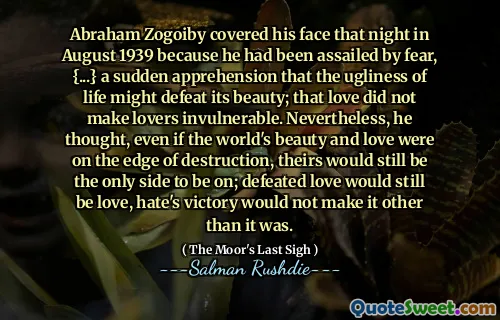we look up and we hope the stars look down, we pray that there may be stars for us to follow, stars moving across the heavens and leading us to our destiny, but it's only our vanity. We look at the galaxy and fall in love, but the universe cares less about us than we do about it, and the stars stay in their courses however much we may wish upon them to do otherwise. It's true that if you watch the sky-wheel turn for a while you'll see a meteor fall, flame and die. That's not a star worth following; it's just an unlucky rock. Our fates are here on earth. There are no guiding stars.
The passage reflects on humanity's desire to find guidance and hope in the stars, suggesting that we often look to the heavens for meaning and destiny. It highlights the contrast between our romantic notions of the universe and its indifference towards our existence. We yearn for divine signs and celestial paths, yet the stars remain unchanged by our wishes, symbolizing our own vanity in believing that the cosmos is invested in our fate.






